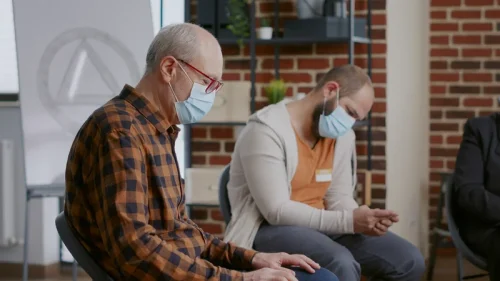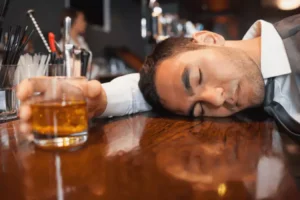
It’s not just your drinking buddies and drug dealers who can get you into trouble—sometimes those who are closest to you can contribute to a relapse. Irina Gonzalez is the Content Marketing Manager at Tempest, a digital membership program that empowers you to quit drinking and live alcohol-free. She is also a freelance writer covering parenting, https://ecosoberhouse.com/article/how-to-taper-off-alcohol/ recovery, and Latinx culture and the creator of the Pandemic Mama podcast. Her work has appeared in over 50 publications, including The Washington Post, O! She is a new resident of Denver, where she lives with her husband, spunky toddler, and their fur babies. You can find more of her work on her portfolio site or by following her on Instagram.
Healthier Drinking
- Alcoholics Anonymous and many rehab programs often present abstinence as the only option.
- Alcohol is a depressant, so your nervous system compensates for long-term heavy drinking by becoming more hyperactive.
- This rare, emergency condition causes dangerous changes in the way your brain regulates your circulation and breathing, so it’s important to get to the hospital right away.
It’s important to remember that labeling yourself is not necessary to take a step back and reconsider alcohol’s role in your life. That’s why Mehta recommends being kind to yourself and thinking about this as an experiment. She also recommends starting with an event where you’re most comfortable and even relying on an alcohol-free beverage to ease the transition. This article is part of a content partnership with our friends at Tempest, the first evidence-based digital recovery platform.
- Occasionally, decisions need to be made about the use of alcohol.
- “You could use a calendar, journal or any number of tracking apps.” Drink Control Alcohol Tracker or Less are two examples of free tracking apps available on iOS devices.
- “You’re creating an atmosphere where people feel comfortable to decline and say, ‘No thank you,’ ” says David Dorschu, who heads Recovery Centers of America, an addiction treatment program.
National Institute on Alcohol Abuse and Alcoholism (NIAAA)
- NIAAA’s Rethinking Drinking can help you assess your drinking habits and provides information to help you cut back or stop drinking.
- You are already aware that it takes more alcohol to get the same buzz you used to get.
- Finally, continuing to meet with a recovery coach or therapist can give you strategies for navigating tough challenges, and a supportive ally to keep you moving forward.
However, for many, the right combination of stress and environmental factors can set this chain reaction in motion. If you’d like to reduce your drinking, but aren’t aiming for total abstinence, there are a number of strategies that can help. There is no way to completely prevent these symptoms if you quit abruptly. Your best bet is to have medical supervision to keep you safe. Doctors sometimes prescribe sedatives like benzodiazepines to ease the symptoms, as well as gabapentin and baclofen.
Thinking about taking a break from alcohol? Here’s how to cut back or quit
Relapses happen during rehabilitation, but what’s important is how you move forward from it. You may want to talk with a loved one or therapist about why it happened and what you can do differently next time. Sunnyside provides a simple but structured approach to help you drink more mindfully. Discover more energy, restful sleep, and improved wellness with a plan designed to fit your life. You might reach for alcohol when you’re really just thirsty, says Crews. Drink a cup of soothing tea or a tall glass of water before you imbibe—once your thirst is quenched, you may not feel the need for as much—or any—alcohol.
Prepare for potential alcohol detox
If you’re thinking of cutting back, this can be a great way to test things out, or get started on your journey. Continuing with a long-term treatment plan can assist with this. how to take a break from drinking Medications like acamprosate can help you maintain abstinence, while naltrexone can help you guard against relapse by neutralizing the pleasurable effects of alcohol.

Even after admitting you have a drinking problem, you may make excuses and drag your feet. It’s important to acknowledge your ambivalence about stopping drinking. If you’re not sure if you’re ready to change or you’re struggling with the decision, it can help to think about the costs and benefits of each choice. These symptoms may start a few hours or a few days after your last drink of alcohol. Sometimes, symptoms may be severe enough to require medical treatment at a hospital or rehabilitation facility.


